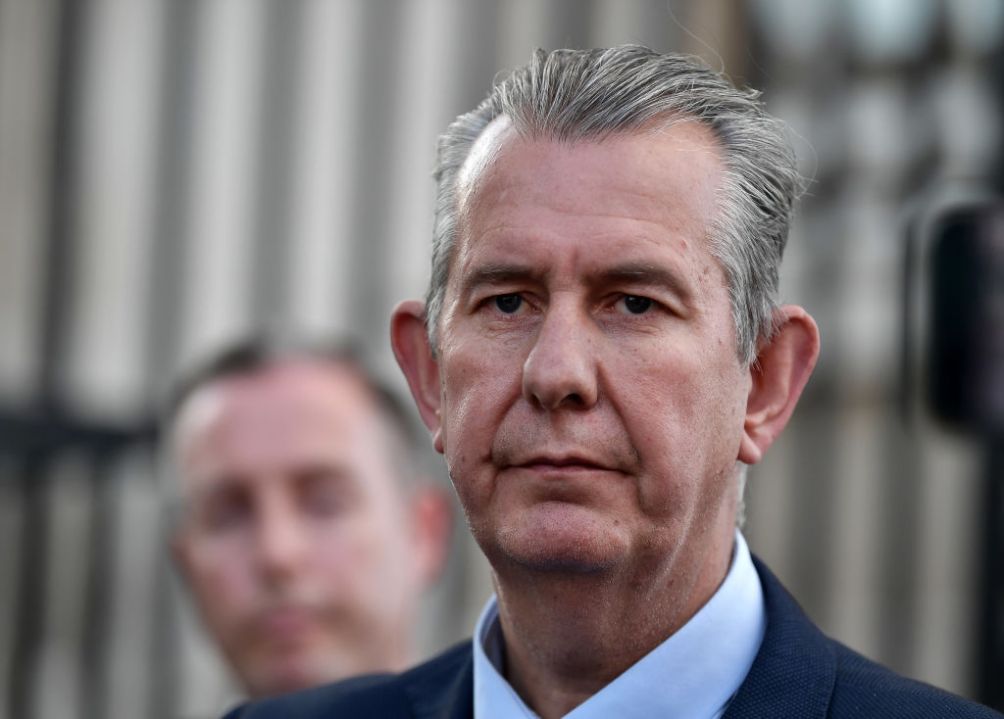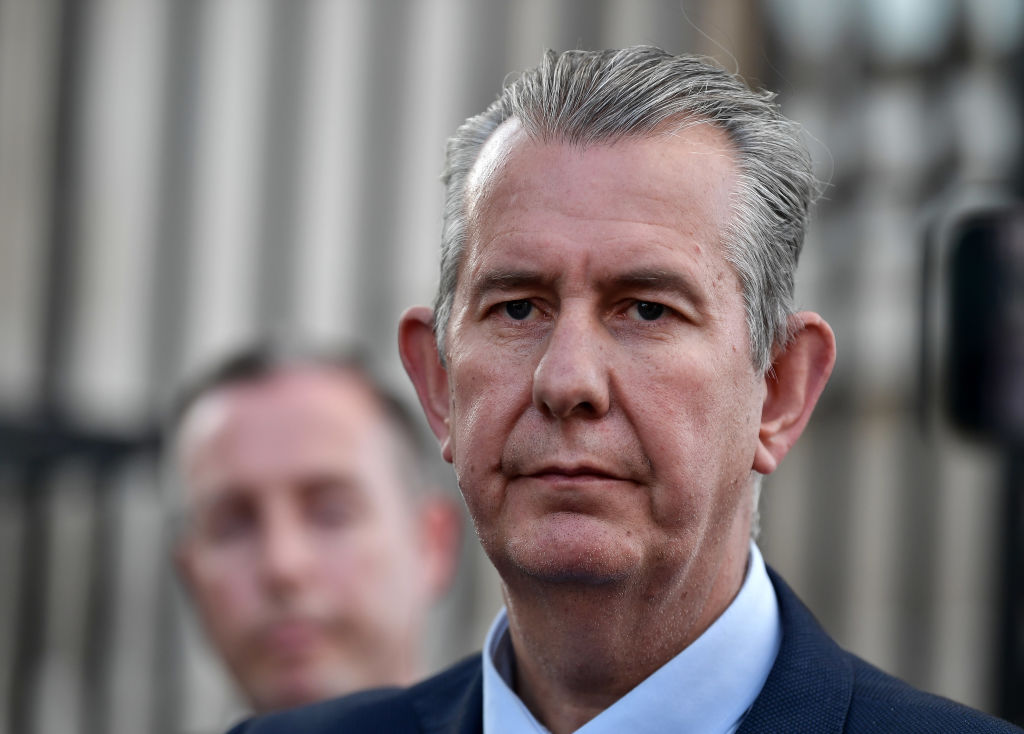New DUP leader Edwin Poots has wasted little time consigning the Arlene Foster era to history. Poots’ shake-up of his Stormont ministerial team has resulted in Foster’s loyalists being shown the door, in favour of what the Traditional Unionist Voice leader Jim Allister drily termed ‘Poots’ posts’.
Poots’ appointment of Paul Givan, his fellow Lagan Valley MLA, as first minister of Northern Ireland, is perhaps his most controversial, though not unexpected, move. Givan, who like Poots is a creationist, is one of the more verbose figures in the DUP hinterland.
During his previous spell as communities minister – at the height of the renewable heating crisis, which did for devolution in 2017 – he cut a bursary scheme which allowed disadvantaged children to learn Irish. In 2014, he also championed a Private Members Bill which, in the eyes of Northern Ireland’s LGBT community, could have allowed businesses to refuse to serve individuals who identified that way.
Aside from blandishments about the need to get rid of the Protocol, the DUP are offering no feasible solution
While Givan is well regarded in his particular branch of the unionist tribe, dissatisfaction in his own party quickly emerged. Diane Dodds, the ousted economy minister, was tweeting about the need for the DUP and unionism to be more welcoming and all encompassing. Perhaps unsurprisingly, this analysis was enthusiastically shared by her husband Nigel, now Lord Dodds. A reshuffle to bring the disparate wings of the party together this was not.
Several councillors have already resigned over Poots’ leadership this week, with more expected to follow. And Givan’s appointment has done little to calm tensions. Indeed, the new first minister’s politics are catnip for DUP critics and his own supporters alike; he was branded an ‘ignoramus’ by Gerry Adams over the cuts to Irish language funding, though some unionists would regard that as a badge of honour.
The confirmation of Givan’s appointment as first minister requires Sinn Fein to appoint a deputy first minster, so his coronation is no done thing. The republicans have said they will seek guarantees around some of their key demands – particularly over the Irish language – before any such ratification. It would be a dangerous move for Givan to play to his base on that particular issue; such is the DUP perilous electoral position, it would almost certainly prove counterproductive.
Beyond Belfast, Northern Ireland Secretary Brandon Lewis will be watching on with interest. He gave an interview to the Sunday Times which was surprisingly interventionist by his standards; he pronounced on abortion rights, debating whether Poots should be DUP leader and first minister simultaneously and announced the appointment of the former Ireland rugby international Trevor Ringland as an envoy to the United States.
Interestingly, Lewis spoke of his awareness of those who ‘want to see a more modern, liberal, progressive, unionist approach to things’. He also praised new UUP leader Doug Beattie for ‘clearly trying to make the effort to go out and connect with people…trying to look at that slightly more liberal approach to unionism’.
Whitehall coolness towards the DUP is nothing new. But Givan and Poots will also have been looking at events in Portadown over the course of the weekend apprehensively. Masked men, some in paramilitary garb, marched through the town centre, with similar protests planned in the coming days, including in the loyalist heartland of the Shankill Road in Belfast.
Winning loyalists back to the DUP fold is the critical challenge facing both men, alongside extending unionism’s appeal. How to square that circle seems beyond both Poots and Givan at the present time; aside from blandishments about the need to get rid of the Protocol, the DUP is offering no feasible solution.
Their plight is, of course, not helped by a lack of flexibility and magnanimity on the part of the EU and the Irish government, contributing to an absence of creativity about mitigating the east-west impact of the Protocol. The absence of a tangible, unionist win on that score could lead to a long, hot summer – one which would not be conducive to Northern Ireland’s long-term interests. This may well be a short-term double act at the top of unionism.







Comments